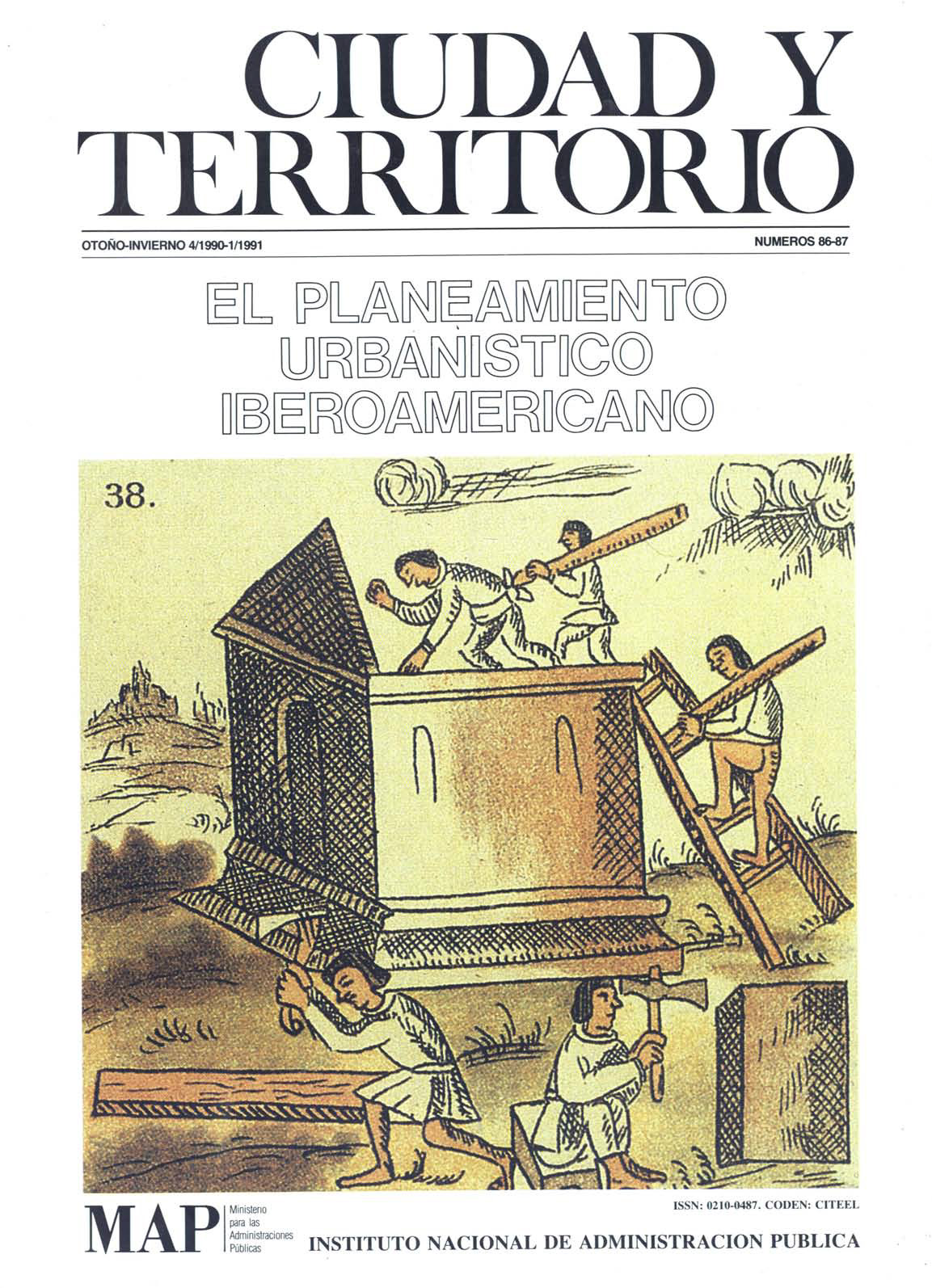Municipal competencies as to planning questions
Abstract
A first glance at the laws as to local government in the countries of Ibero-america would lead us to hold that town and country planning is a function of local government in the greater part of them or so the paper expounds, A deeper examination would turn up structures shaky as to their autonom y and means of managing these and other competencies more. That decentralizacion of functions undergone during recent decades by some of these nations in point have, it is here felt, been little more than a handing down and about of competencies and employments while both means and their management have remained entangled within a centralized working methodology. Faced with these problems, a brief comparative study of planning competencies held by local government as within the ten nations that make up the area is seen to have been in keeping, albeit this has been undertaken with neither methodological pretensions nor yet again out of any wish to be Iitiginous. The secondary intent behind this study is the creation of such teoretical bases as would make the putting forward of future proposals profitable and by these enrich the critical discourse as to local government an d its chances of being able to meet the demands made upon it by city management.
Downloads
Downloads
Published
How to Cite
Issue
Section
License
Copyright (c) 1991 Jonás Figueroa Salas

This work is licensed under a Creative Commons Attribution-NonCommercial-NoDerivatives 4.0 International License.
Considering the provisions of the current legislation on Intellectual Property, and in accordance with them, all authors publishing in CyTET give -in a non-exclusive way and without time limit- to the Ministry of Transport, Mobility and Urban Agenda the rights to disseminate, reproduce, communicate and distribute in any current or future format, on paper or electronic, the original or derived version of their work under a Creative Commons Attribution-NonCommercial-NoDerivative 4.0 license International (CC BY-NC-ND 4.0), as well as to include or assign to third parties the inclusion of its content in national and international indexes, repositories and databases, with reference and recognition in any case of its authorship.
In addition, when sending the work, the author(s) declares that it is an original work in which the sources that have been used are recognized, committing to respect the scientific evidence, to no longer modify the original data and to verify or refute its hypothesis. Author(s) also declare that the essential content of the work has not been previously published nor will it be published in any other publication while it is under evaluation by CyTET; and that it has not been simultaneously sent to another journal.
Authors must sign a Transfer of Rights Form, which will be sent to them from the CyTET Secretariat once the article is accepted for publication.
With the aim of promoting the dissemination of knowledge, CyTET joins the Open Journal Access (OA) movement and delivers all of its content to various national and international indexes, repositories and databases under this protocol; therefore, the submission of a work to be published in the journal presupposes the explicit acceptance by the author of this distribution method.
Authors are encouraged to reproduce and host their work published in CyTET in institutional repositories, web pages, etc. with the intention of contributing to the improvement of the transfer of knowledge and the citation of said works.








 Enlace a CyTET en Linkedin
Enlace a CyTET en Linkedin